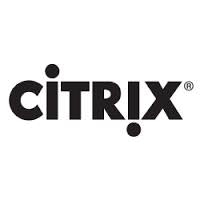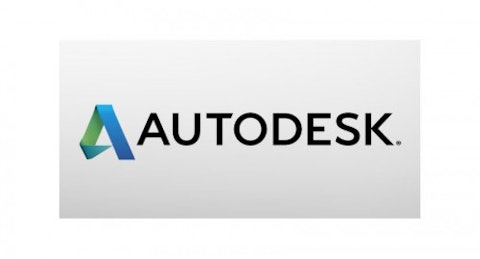In this article, we are going to list the 15 biggest software companies in the world. Click to skip ahead and jump to the 5 biggest software companies in the world.
If you are reading this on your laptop or desktop, that medium is hardware. The program that runs your laptop is called software. By definition, the software is a computer program that provides data and instructions for the execution of user commands.
Today, there is a wide variety of software that we interact with and make our lives easier. The software industry can be divided into the following segments: programming services, device services, open-source, and software-as-a-service. Some of the basics are Microsoft Word, Avira, Adobe Photoshop, and your Windows Media Player (iTunes for Mac users). Moreover, there are a variety of software applications. In business, our lives are easier because we have specific programs for databases, accounts, billing, payroll, and even human resources management. It is no doubt, free software helps the small business that is starting with their venture too when they don’t have a pocket of cash to spend on enterprise software. Feel free to read the 6 Easiest Free Online Database Software For Small Businesses for free CRM ideas.

Antonio Guillem/Shutterstock.com
Today, the software industry is valued at $533 billion. Revenue is projected to show a compound annual growth rate (CAGR 2020-2025) of 7.7%, resulting in a market value of US$773 billion by 2025. In global comparison, most of the revenues will be produced in the United States ($269 million in 2020).
With the advancement of digital technology, developers can incorporate software and artificial intelligence to fight the spread of the coronavirus pandemic. In South Korea, an artificial intelligence company released free COVID-19 research tools for the early detection and evaluation of symptoms of the virus. The program can identify, segment, and generate 3D models of pulmonary damage caused by COVID-19 based on analysis of CT images. You can visit our 15 Largest AI companies in the world if you are looking to invest in artificial intelligence companies. On the other hand, we all know by now that contract tracing helps stop the spread of coronavirus. The WHO together with partners of the Global Outbreak Alert and Response Network release a contact tracing software called Go.Data to help field workers with efficient contact tracing.
Is it still the best time to invest in the software industry? Well, it might be still! Here’s my take: the business world has continued most of its operations online. During this pandemic recession where practicing social distancing is a must, good software to carry your business’ life is essential. And, fortunately enough, most software companies are well-prepared for remote work. One good sample is Microsoft’s (NASDAQ: MSFT) office-related software’ boom due to the work from home setup during the COVID-19 pandemic. Amid Covid-19, demand for next-generation collaboration and productivity tools grew as businesses switched to work-from-home.
Today, a significant number of value investors believe many Software-as-a-service stocks are in a giant bubble. Giverny Capital summarized the current statuesque in its Q3 investor letter:
“In July, I sat in on a conference call with a respected sell-side analyst who covers technology, media and telecommunications companies, known as TMT. This particular analyst had spent the first portion of his career in the MT portion of TMT, meaning he was used to covering film studios, cable operators and wireless companies that earned a lot of money and traded for relatively low multiples of their cash flow. Now, he found himself covering companies that traded not for multiples of earnings, but for multiples of sales, owned by investors who aren’t especially interested in earnings or cash flow, at least for now.
Rather, they’re focused on a very long game of creative destruction – replacing existing “analog” business models with more efficient, technology-driven “digital” models that may not be profitable until the analog model collapses, but eventually should benefit from a winner-take-most dynamic that has turned a handful of older tech giants into the most valuable businesses in the world. The analyst first said the obvious, that the valuation spread between the haves and have nots in TMT is “off the charts,” and unlikely to narrow so long as interest rates are this low. There is very little opportunity cost of holding the stock of a fast-growing business that makes little or no money when the risk-free alternative of US Treasuries yields next to nothing. After all, the fast-growing business should generate more income with time, and potentially a lot more; the US Treasury will not. He also noted that in technology, the right strategy for a decade has been to be in consensus. Own what everybody likes. Do not be contrarian. Buy things that trade for 30 times earnings, or more, and short things that trade for single digit multiples. He disclosed with some wonderment that no one ever calls him about the cheapest stocks in his coverage universe.
To be clear, he continued, the level of conviction among tech investors is very high. This is not a cynical investor base pumping up stocks in the belief that a greater fool will come along. Rather, tech investors believe that we are still in the early stages of a revolution in the economy, such that buying software-as-a-service (SaaS) stocks for twenty times the value of their current sales feels comfortable, because in the future most companies will be running their businesses more efficiently by using licensed software over cloud-based computer networks, and that software will become like electricity, or running water, only with unregulated pricing.
This theory may well be correct, and unquestionably the pace of change in the economy is accelerating. But recognizing change is a lot easier than figuring out how to value it. The math on many current stock valuations is daunting. Think about the risk of paying $20 for a business that has $1 of sales and loses money. The investor must have extraordinary confidence in his or her ability to apprehend the future. To me, it feels like walking a high wire over a distant city street: something I’ll never forget if I make it to the other side and something I won’t remember if I don’t. Are SaaS subscriptions as inviolable as interest payments on debt? COVID-19 may put that theory to the test in the months ahead. We know companies are asking for relief on all sorts of payments, including rent. What would happen if customers asked for relief on their SaaS payments?”
Software plays a significant role in our lives: be it for business or personal use. If you find small, emerging software companies to risky to invest in, you should take a look at the biggest software companies with proven track records. We listed the biggest software companies in the world and ranked them by revenue. Note that all of the software companies you’ll be seeing in our list are Fortune 500 companies. We used the uploaded data from Fortune for values of revenue, market value, and the number of employees.
Here are the biggest software companies in the world starting at number 15:
15. CDK Global Inc. (NASDAQ: CDK)
Revenue 2020 ($M): 2,332.90
Market Value: 17,319.8
Number of Employees: 9,000
Headquarter: Hoffman Estates, IL
CDK Global, Inc. is a developer of integrated information technology and digital marketing for the automotive retail sector. The Business manages workflow processes from pre-sale targeted ads and marketing strategies to distribution, financing, insurance, parts procurement, repair, and maintenance of vehicles.

14. Citrix Systems Inc. (NASDAQ: CTXS)
Revenue 2020 ($M): $3,010.6
Market Value ($M): 17,319.8
Number of Employees: 8,400
Headquarter: Fort Lauderdale, FL
CTXS ranks 14th in our list of the biggest software companies. Citrix Systems Inc. is one of the leading software companies in the world. The company provides innovative organizations with the ability to manage any application over any connection on any device. It markets and licenses its products to consumers across the internet, device integrators, value-added resellers, and service providers.

13. Infor
Revenue 2020 ($M): 3,171.2
Number of Employees: 17,380
Headquarter: New York, NY
Infor is a private company that offers enterprise applications and services all over the world. It operates through the licensing, servicing, and advisory segments. They offer business applications for CRM, ERP, HRM, financial management, performance management, and business management. Infor builds full industry suites in the cloud and effectively deploys technology that puts customer experience first, leverages data science, and integrates seamlessly with existing systems.

SFIO CRACHO/Shutterstock.com
12. Autodesk Inc. (NASDAQ: ADSK)
Revenue 2020 ($M): $3,651
Market Value ($M): 55,892
Number of Employees: 10,100
Headquarter: San Rafael, CA
ADSK ranks 12th in our list of the biggest software companies. Autodesk, Inc. serves as a multinational software design and services organization. It offers the world’s most popular design, detailing, and visualization software, the AutoCAD. Autodesk, Inc. provides software products to professionals in the architecture, engineering and construction, product design and production, and media and entertainment sectors.

11. Synopsys Inc. (NASDAQ: SNPS)
Revenue 2020 ($M): 3.360.7
Market Value ($M): 19,347.8
Number of Employees: 13,896
Headquarter: Mountainview, CA
Synopsys is an electronic design automation firm based in Mountain View, California. The company’s technology is used in a wide variety of applications, namely artificial intelligence, self-driving vehicles, and smart devices. Synopsys Inc. designs and specifies silicon chips owns a large portfolio of semiconductor intellectual property and develops software security tools.

10. Red Hat Inc (NYSE: RHT)
Revenue 2020 ($M): 3,362.1
Number of Employees: 13,360
Headquarter: Raleigh, NC
RHT ranks 10th in our list of the biggest software companies. Red Hat is the world’s leading provider of business open source applications, including high-performance Linux cloud products. Its software services are designed to provide customers with efficient, versatile, effective, secure technologies that meet the IT infrastructure needs of businesses. Red Hat Inc operates in three regional segments: the Americas (U.S., Canada, and Latin America), EMEA (Europe, Middle East, and Africa), and the Asia Pacific. IBM purchased Red Hat for $34 billion in 2019.

Profit_Image/Shutterstock.com
9. ServiceNow Inc. (NYSE: NOW)
Revenue 2020 ($M): $3,460.4
Market Value ($M): 54,392.9
Number of Employees: 10,371
Headquarter: Santa Clara, CA
NOW ranks 9th in our list of the biggest software companies. ServiceNow, Inc. is a developer of business cloud computing solutions that identify, structure, manage, and automate services for global businesses. The company’s service system focuses on service management for customer support, security operations, and human resources. It markets its services to businesses in a wide variety of sectors, including financial services, consumer products, information technology services, healthcare, government, education, and technology. It runs data centers in Australia, Brazil, Canada, Hong Kong, the Netherlands, Singapore, Switzerland, the United Kingdom, and the US.

8. Workday Inc. (NASDAQ: WDAY)
Revenue 2020 ($M): 4,163
Market Value ($M): 50,256
Number of Employees: 12,200
Headquarter: Pleasanton, CA
WDAY ranks 8th in our list of the biggest software companies. Workday, Inc. offers corporate cloud services around the world. The company offers financial services, human resource management, and analytical applications for various businesses, educational institutions, and government agencies. As part of its applications, the company offers an integrated analysis that extracts the content and meaning of daily business activities and enables informed decision-making from wherever users work.

7. SS&C Technologies Holdings Inc (NASDAQ: SSNC)
Revenue 2020 ($M): 4,632.9
Market Value ($M): 11,203.5
Number of Employees: 22,800
Headquarter: Windsor, CT
SS&C Technology, Inc. is one of the leading software companies in the world that focuses on financial software solutions. The company offers financial management, advisory, managed, and technical services, as well as technology and outsourcing services. Established in 1986 and headquartered in Windsor, Connecticut, the company has more than 22,000 employees across 150 offices in 35 countries worldwide.

Copyright: gmast3r / 123RF Stock Photo
6. NortonLifeLock Inc (NASDAQ: NLOK)
Revenue 2020 ($M): $4,731
Market Value ($M): 11,233.2
Number of Employees: 11,900
Headquarter: Tempe, AZ
Our computers are not safe from malware and viruses. The information that you share online can be hacked and sold to the dark web. Someone can access your bank or credit card info. And the worse case is someone can steal your identity. NortonLifeLock Inc. is a global leader in security software that offers cyber protection solutions to consumers. Norton offers programs that enable consumers to secure their computers, online privacy, identity, and home networks.
Click to continue reading and see the 5 biggest software companies in the world.
Suggested articles:
Disclosure: None. 15 biggest software companies in the world is originally published at Insider Monkey.




